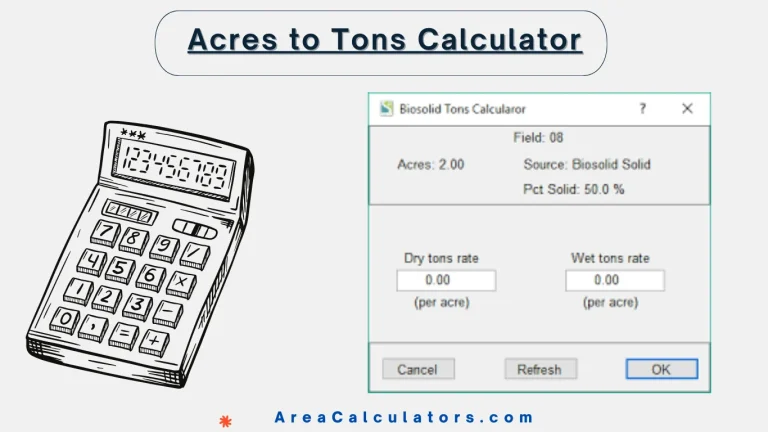To calculate thermal energy, multiply the mass of the substance by its specific heat and the change in temperature.
The Thermal Energy Calculator is built to determine the amount of heat energy transferred or absorbed by a substance. This calculation is crucial in physics and thermodynamics, as it helps in understanding the relationship between temperature changes, mass, and specific heat.
By knowing how much energy is needed to change the temperature of an object, you can calculate the heat required for various applications such as heating, cooling, or energy storage.
Formula
| Variable | Description |
|---|---|
| Q | Thermal energy (in joules) |
| m | Mass of the substance (in kg) |
| c | Specific heat capacity (in J/kg°C) |
| ΔT | Change in temperature (in °C) |
Solved Calculations
Example 1:
| Step | Calculation |
|---|---|
| Mass (m) | 2 kg |
| Specific Heat (c) | 4.18 J/g°C (for water) |
| Temperature Change (ΔT) | 10°C |
| Thermal Energy (Q) | |
| Result | 83.6 joules |
Answer: The thermal energy required to heat 2 kg of water by 10°C is 83.6 joules.
Example 2:
| Step | Calculation |
|---|---|
| Mass (m) | 5 kg |
| Specific Heat (c) | 500 J/kg°C (for metal) |
| Temperature Change (ΔT) | 25°C |
| Thermal Energy (Q) | |
| Result | 62,500 joules |
Answer: The thermal energy required to heat 5 kg of metal by 25°C is 62,500 joules.
What is a Thermal Energy Calculator?
The Thermal Energy Calculator is a heat-related tool. It serves you to calculate the amount of heat energy required to change the temperature of a substance. This tool is essential in physics and engineering for understanding how energy moves within systems.
It works by using the specific heat capacity of a material, which determines how much heat energy is needed to raise the temperature of a given mass of the substance.
To use the calculator, you typically enter the mass of the substance, its specific heat, and the change in temperature. The calculator then applies the thermal energy formula to compute the energy required.
This tool can be applied to various substances, including water, metals, and other materials, to calculate heat energy or thermal energy stored or released during temperature changes.
Final Words:
To wrap it up, the Thermal Energy Calculator simplifies the calculation of heat energy, helping users easily determine the energy involved in heating or cooling substances based on their specific properties.





